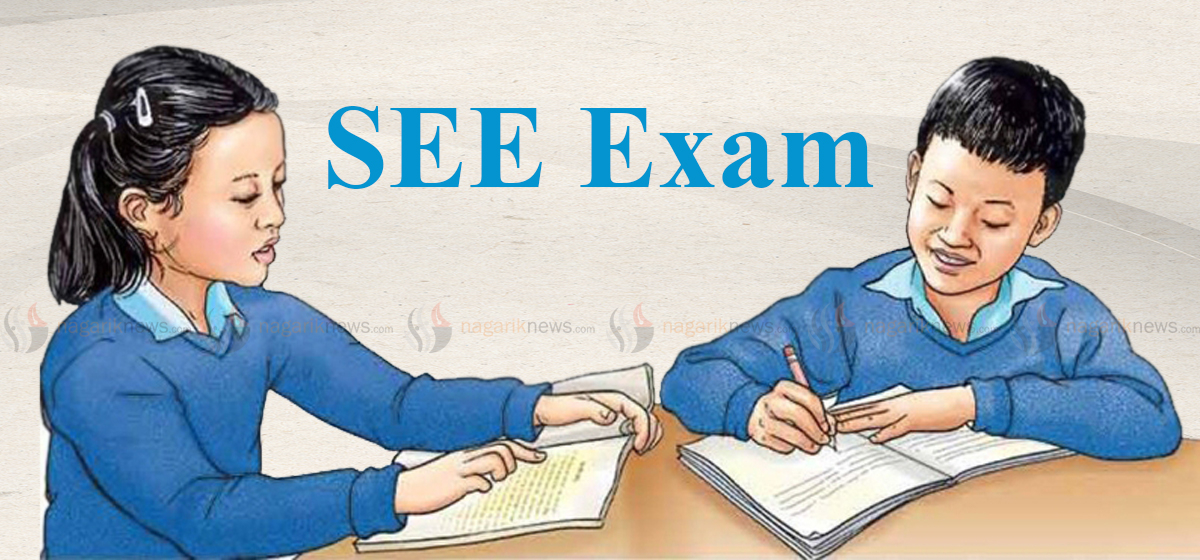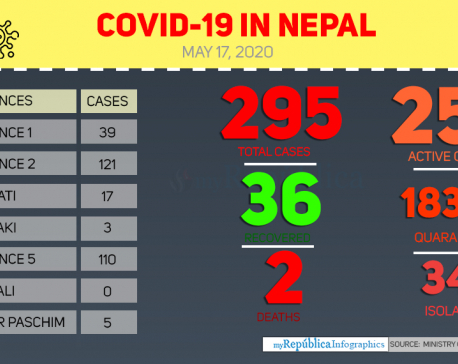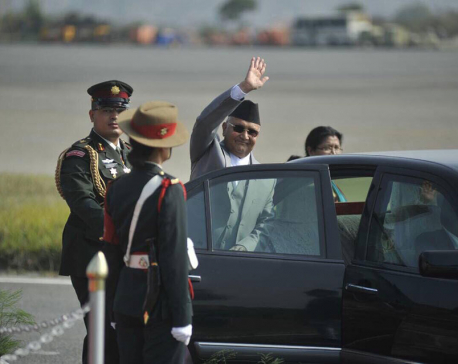
OR
Editorial
Stop making whimsical decision
Published On: January 17, 2024 08:53 AM NPT By: Republica | @RepublicaNepal

Secondary Education Examination (SEE), previously known as the School Leaving Certificate (SLC) examination, is considered one of the important examinations in a student's life in Nepal. This examination is seen as an examination that not only ensures that students across all schools have a minimum learning outcome, but also to enhance the overall learning experience. However, recent debate in Nepal's education system, specifically the removal of the SEE for Grade 10 from the School Education Bill-2080 BS, have raised concerns and sparked a call for reconsideration. Experts have voiced concerns over the proposal, arguing that any such decision requires a thorough study and research. As the government officials have not furnished any concrete grounds for such a significant alteration in the school education, this decision must be reconsidered. The contention of the government that examinations should not be a cause of undue burden to students is understandable, but there are no justifiable reasons provided to remove the SEE examination.
A study carried by the National Center for Quality Learning on the learning achievement of school-level children reveals a troubling decline. In 2017, minimum learning achievements of students in Nepali, science, and mathematics stood at 69%, 44%, and 46%, respectively. Disturbingly, a 2020 study indicates a further decline, with achievements dropping to 59%, 38%, and 32%, respectively. These data highlight the need to put a renewed emphasis on examinations to enhance the learning levels of students. In fact, examinations like SEE play a crucial role in developing reading habits and studiousness among students. It is not only Nepal that conducts standardized examinations like SEE. Many other countries such as China, India, Bhutan, Bangladesh, Sri Lanka, and the UK have a system of conducting standardized exams similar to SEE. In this sense, it is important to set standards for minimum learning outcomes rather than debating who administers the examinations. This aligns with the demands of teachers, who are calling for a country-friendly education policy and compulsory SEE, as outlined in the 61-point amendment proposal submitted by the Confederation of Nepalese Teachers (CNT) to the parliamentarians. Among other things, they have highlighted the importance of SEE, demanding its continuation.
As a newspaper, we believe that removal of SEE does not augur well for the country’s school education. Any such decision may cause an increased dropout rate, weakened learning, and declining educational quality– the concerns shared by a number of educationists. Since there is a global practice of conducting standardized tests in grades 8, 10, and 12 at the school level, Nepal should consider maintaining SEE to safeguard the learning achievements of students. We think preserving the integrity of the education system is more important than who conducts the examination. We believe that an arrangement can be made to conduct the SEE by the provincial government instead of the federal government by setting appropriate standards. But the government officials involved must refrain from making whimsical decisions in regards to SEE.
You May Like This
_20201014060614.jpg)
Nepal abstains from voting as UNHRC adopts resolution against Sri Lanka's human rights record
KATHMANDU, March 23: Nepal has chosen to abstain from voting in the United Nations Human Rights Council on a resolution... Read More...

Health ministry confirms three new COVID-19 cases, number of total cases reaches 295
KATHMANDU, May 17: Nepal reported three new cases of COVID-19 on Sunday evening, taking the national tally to 295. ... Read More...

What Nepal needs is India's friendship and support for growth: Nepal PM Oli
In an exclusive interview to The Hindu, Mr. Oli says the bitterness of past relations have been put behind them,... Read More...







Just In
- NRB to provide collateral-free loans to foreign employment seekers
- NEB to publish Grade 12 results next week
- Body handover begins; Relatives remain dissatisfied with insurance, compensation amount
- NC defers its plan to join Koshi govt
- NRB to review microfinance loan interest rate
- 134 dead in floods and landslides since onset of monsoon this year
- Mahakali Irrigation Project sees only 22 percent physical progress in 18 years
- Singapore now holds world's most powerful passport; Nepal stays at 98th











Leave A Comment